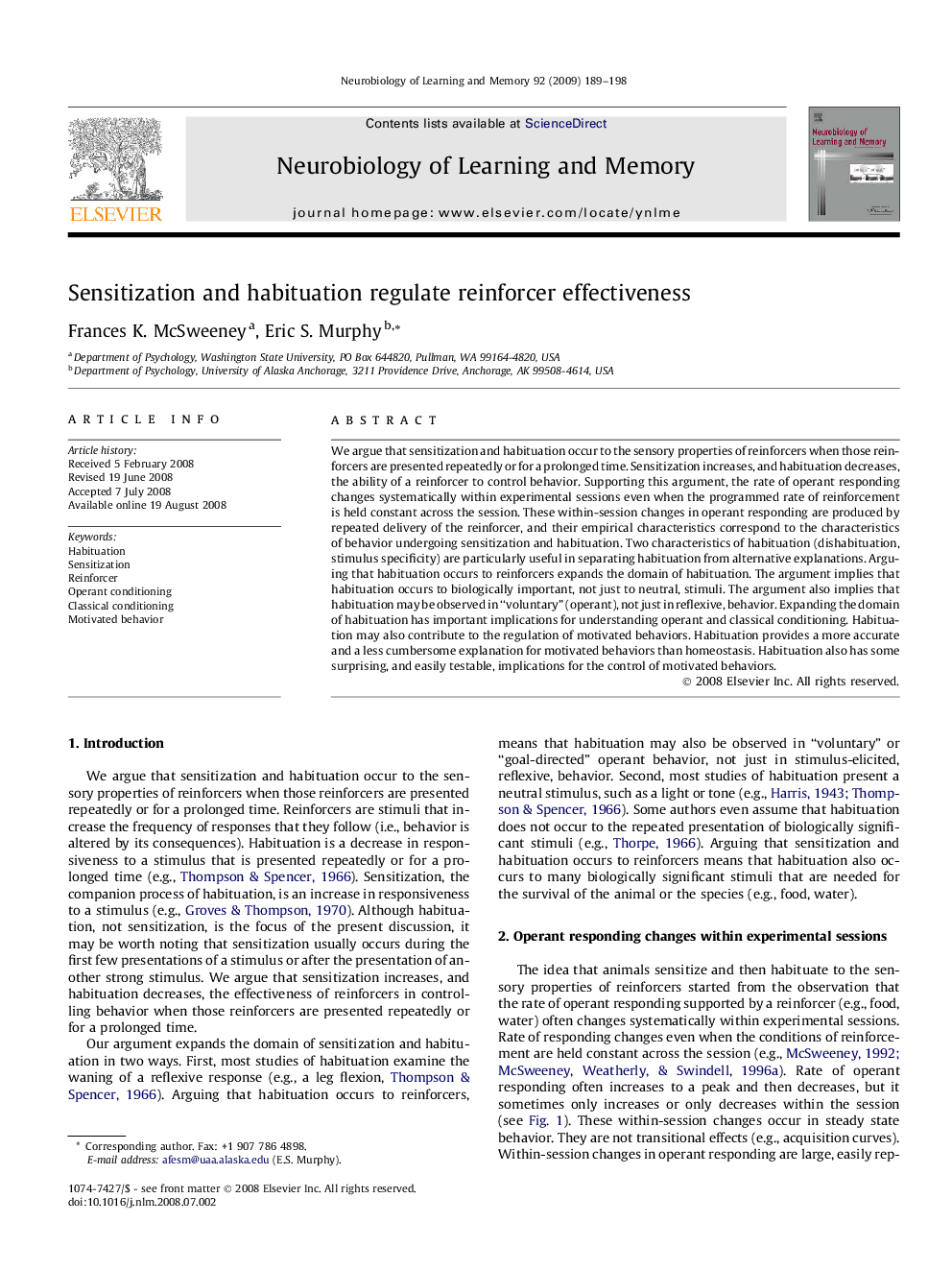| Article ID | Journal | Published Year | Pages | File Type |
|---|---|---|---|---|
| 936794 | Neurobiology of Learning and Memory | 2009 | 10 Pages |
We argue that sensitization and habituation occur to the sensory properties of reinforcers when those reinforcers are presented repeatedly or for a prolonged time. Sensitization increases, and habituation decreases, the ability of a reinforcer to control behavior. Supporting this argument, the rate of operant responding changes systematically within experimental sessions even when the programmed rate of reinforcement is held constant across the session. These within-session changes in operant responding are produced by repeated delivery of the reinforcer, and their empirical characteristics correspond to the characteristics of behavior undergoing sensitization and habituation. Two characteristics of habituation (dishabituation, stimulus specificity) are particularly useful in separating habituation from alternative explanations. Arguing that habituation occurs to reinforcers expands the domain of habituation. The argument implies that habituation occurs to biologically important, not just to neutral, stimuli. The argument also implies that habituation may be observed in “voluntary” (operant), not just in reflexive, behavior. Expanding the domain of habituation has important implications for understanding operant and classical conditioning. Habituation may also contribute to the regulation of motivated behaviors. Habituation provides a more accurate and a less cumbersome explanation for motivated behaviors than homeostasis. Habituation also has some surprising, and easily testable, implications for the control of motivated behaviors.
